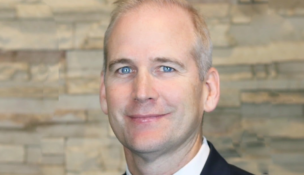Getting on the radar
As a corporate location, Richmond is on the rise. It’s got historic architecture, a hip and growing restaurant scene, universities and a climate that’s business friendly to millennials and young entrepreneurs. “As I scan the region, there’s not much that’s missing,” a national site consultant said Tuesday.
A highly ranked system of higher education and strong state and regional economic development agencies are another plus. “You have it from the data standpoint, but not from a field standpoint. You’ve off the radar,” Tom Stringer told a gathering of the Greater Richmond Area Commercial Real Estate Association (GRACRE).
Stringer, managing director, site selection and business incentives, for BDO USA in New York City, shared his perceptions of the region and the state through the eyes of a consultant who works on deals around the country. About 160 people turned out to hear his remarks during a meeting at the Country Club of Virginia.
To get Richmond on the national radar of site consultants, Stringer said the region needs to land a big deal. “Being quiet is good to some extent — and you’ve been good and bubbling to the surface — but you’ve got to make that big splash. You’ve got to win something big and unique and that will be the sea change.”
The region also needs an airport with more direct flights — an asset that helps attract corporate headquarters.
In flying to Richmond, Stringer said he had difficulty finding a flight at a good time and reasonable price on a Monday morning. He was in Richmond, in part, he said, to discuss a project with the Greater Richmond Partnership that he believes could be a good fit. Stringer declined to discuss details. Leaking confidential information when a project is in the negotiation stage is the No. 1 deal killer, he told the audience.
In fact, leaks can knock a city off a site selection list. During his 20-year career, “almost always the leak comes from the brokerage or the development community,” instead of local and state economic development agencies, he said. “It’s hard for people in this room, because sharing information is what we do for a living,” said Stringer, who also is a broker. Yet once information leaks out, “that’s the minute you kill it. Many companies won’t come back, and site selectors tell their colleagues in the business what happened.”
The flip side of the equation is that brokers can be invaluable to the site selection process. “They are exceptional in helping us get a job done,” Stringer said. “The man or gal on the ground knows the ins and outs on the granular level … If site selectors and brokers work hand-in-hand, you can leverage down the rental rate and increase the incentives,” he said, referring to items that help close deals.
Questions from the audience led to more tips. Stringer said Richmond frequently comes up on the same lists as Nashville, Tenn.; Austin, Texas; and Columbus, Ohio. Yet, he referred to Austin as a cautionary tale. For years, it enjoyed the buzz of being a young, hip, university town, and it drew corporate relocations. Yet when Austin needed to invest in infrastructure, such as building new roads or expanding its airport, the city balked, Stringer said, out of fear of damaging its charm.
Richmond has done a good job in rehabbing its old buildings, said Stringer, “but don’t stop with the redevelopment. Don’t say, ‘we’ve reached our peak. … We’re not going to change or accommodate. ‘ That’s where Austin has gone off the rails. People don’t go to Austin anymore. It takes three years for a building permit, and there’s no incentives. You have to live 20 miles from the city or put the facility near San Antonio. ‘It’s a privilege to be in Austin.’ That’s the mindset you have to avoid.”
A strong selling point for Virginia among corporate recruiters is the VEDP, which Stringer said is regarded as one of the “three or four best” in the country.
“I know it’s had a few problems recently,” he said, “You just need to tweak it in a few spots.”
Stringer was referring to the fact that VEDP is in the midst of an overhaul by the General Assembly. It passed a bill during the 2017 session reducing the size of the VEDP’s board and implementing tighter controls over incentives. Those moves were the result of a hypercritical report from the state’s watchdog agency over VEDP’s operational inefficiencies, particularly a $1.4 million incentive payment to a Chinese company that did not follow through on plans to build a factory.
Stringer added that he knows Stephen Moret, Louisiana’s former secretary of economic development, who was hired in November as the new CEO of VEDP. “Steve did a bang-up job in terms of transforming a state that had a lot of issues,” Stringer said.
Another strong selling point is what Stringer referred to as Virginia’s “top-tier” higher education system. “You have tens of thousands of engineers in this state. Don’t let them leave.” It’s at the elementary and middle level where some schools struggle. “ If you could improve those schools, that would make a huge difference.”
One question from the audience had to do with the mega region approach. Over the past few years, some business groups have pushed for Richmond and Hampton Roads to merge their marketing and branding efforts, selling the combined region as a business location. Stringer said he wasn’t a fan of the concept. “I think it’s a little silly,” he said. “You’re globbing too much together, and you lose that feel for what a particular region is, and what it can really do … You have a lot of good assets here. I would push those and stay away from linking up with anyone else.”
In the final analysis, site selectors “like to do business with people we trust.” Stringer advised that Richmond spend more time and money meeting people who are decision makers in corporate site selection. “It’s not locations that I have in my back pocket, “ he said, “It’s people I’ve worked with over the years that I know can deliver the goods, that can get the concrete poured, that can get the permits. We might be the last industry where personal relationships make a difference. We haven’t been Uber-ed yet…”
e

















